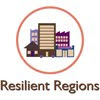On Tuesday, July 13, the NADO Research Foundation, in partnership with the U.S. Economic Development Administration (EDA), conducted a webcast to benefit spill-impacted communities in the Gulf of Mexico.
The broadcast, Recovering from the BP Gulf Oil Disaster, Lessons Learned from Exxon Valdez, sought to reduce the learning curve of recovery by drawing on the experience of former members of the Exxon Valdez Oil Spill Trustee Council in Alaska. Click here for the presentation slides and click here for the recorded broadcast.

Opening the webinar with remarks about the role of EDA and the federal government in the Gulf, EDA Assistant Secretary John Fernandez noted the importance of the people of the region to remain resilient in what is expected to be a multi-year recovery effort. Assistant Secretary Fernandez continued by saying, "We're going to work with the communities and our partners in the area to coordinate a long-term recovery so we can stabilize the [Gulf Coast] economy and help rebuild it."
Speakers for the event were:
- Dave Cobb, former Mayor of Valdez, AK, former member of the Exxon Valdez Oil Spill Trustee Council and current Business Manager of the Valdez Fisheries
- Molly McCammon, Executive Director of the Alaska Ocean Observing System and former Executive Director of the Exxon Valdez Oil Spill Trustee Council
Among the many salient points made by our speakers, below are a few that resonated about what to expect in the months and years ahead:
- Dig in for the long haul - with regard to Exxon Valdez, litigation and claims processes lasted as long as fifteen years in some cases -- expect the best from BP, but prepare for the worst
- Keep good records - in order to receive compensation from BP, or to be eligible for federal assistance, documentation is required to substantiate claims of lost wages and lost business revenues
- Find your inner entrepreneur - although several industries are likely to be negatively affected by the spill, several economic opportunities will emerge as a result of the spill itself including increased housing demand and the need for support services for personnel involved in the cleanup
- Every man for themselves - don't wait for assistance from someone else (BP, federal or otherwise). Impacted businesses and citizens should take steps within their power to restore their own livelihood
The latest good news related to the spill is that the latest attempt to cap the well appears to be working. From BP's web site on July12: "The three ram capping stack was installed on the Deep Water Horizon Lower Marine Riser Package at 7 p.m. CDT. The stack completes the installation of the new sealing cap." (source)
For three agonizing months there has been painfully little to celebrate along the shores of the Gulf. Now, a week beyond the latest (and seemingly most successful) attempt at containing the well, residents of the Gulf can finally, if only momentarily, breathe a collective sigh of relief.
And now the recovery begins in earnest...





